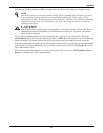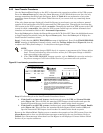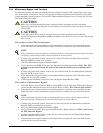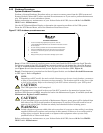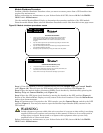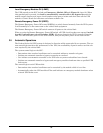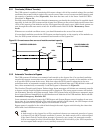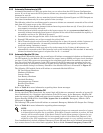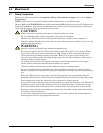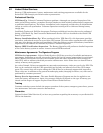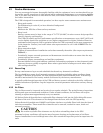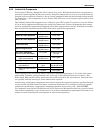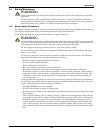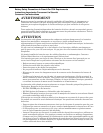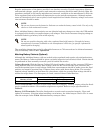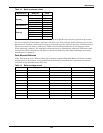
Maintenance
98
4.0 MAINTENANCE
4.1 Safety Precautions
Observe the safety precautions in Important Safety Instructions on page 1 and in 1.3 - Safety
Precautions.
ONLY qualified service personnel should perform maintenance on the UPS system.
Observe ALL of the WARNINGS below before performing ANY maintenance on the UPS System and
associated equipment. Also observe the manufacturer’s safety precautions pertaining to the battery,
along with the battery safety precautions in this section.
!
CAUTION
Always identify connecting wiring prior to disconnecting any wiring.
Do not substitute parts except as authorized by Liebert Corporation.
Maintain the UPS cabinets free of foreign materials such as solder, wire cuttings, etc.
Contact Liebert Global Services if you are not sure of the procedures to follow or if you are not
familiar with the circuitry.
!
WARNING
Extreme caution is required when performing maintenance.
Be constantly aware that the UPS system contains high DC as well as AC voltages. With
input power off and the battery disconnected, high voltage at filter capacitors and power
circuits should be discharged within 30 seconds. However, if a power circuit failure has
occurred, you should assume that high voltage may still exist after shutdown. Check with a
voltmeter before making contact.
AC voltage will remain on the bypass and output circuit breakers and the static bypass
switch, unless associated external circuit breakers are opened.
Check for voltage with both AC and DC voltmeters prior to making contact.
Be sure to read the battery manufacturer’s manual before working on or near the battery.
Battery terminals will constantly be energized, regardless of whether the UPS is operating or
not.
When the UPS system is under power, both the operator and any test equipment must be
isolated from direct contact with earth ground and the UPS chassis frame by using rubber mats.
Some components within the cabinets are not connected to chassis ground.
Any contact between floating circuits and the chassis is a lethal shock hazard. Use differential
oscilloscopes when measuring a floating circuit. The differential input should have at least
800 vrms common mode input rating and a common mode rejection ratio of at least 80dB.
Exercise caution that the test instrument exterior does not make contact, either physically or
electrically, with earth ground.
In case of fire involving electrical equipment, use only carbon dioxide fire extinguishers or
others approved for use in fighting electrical fires.



